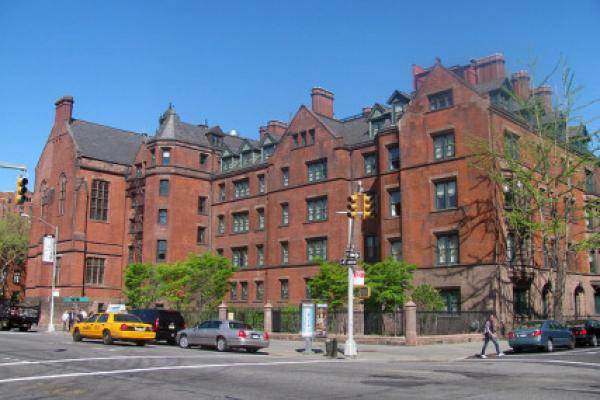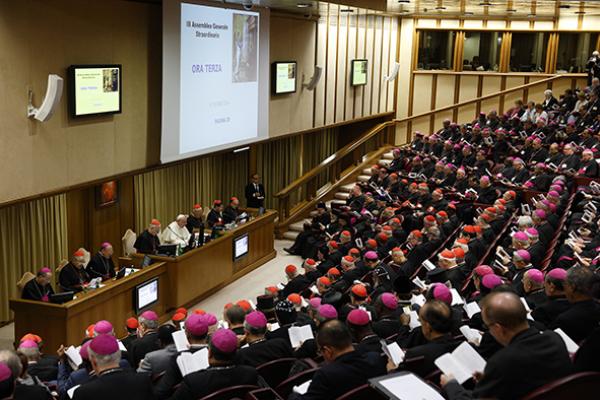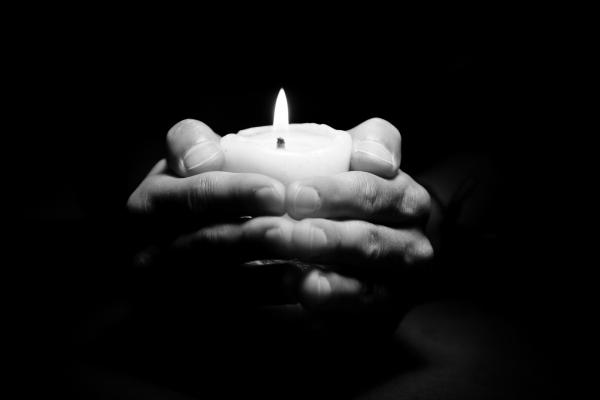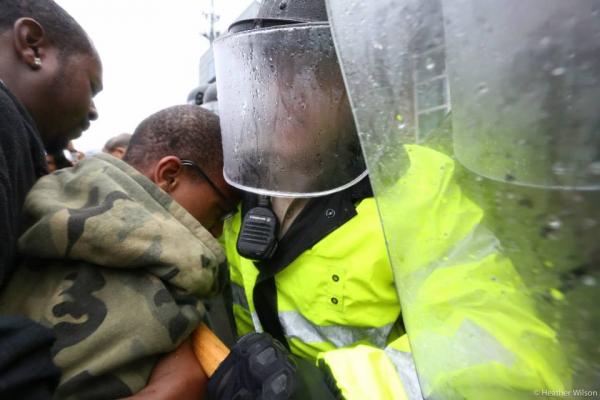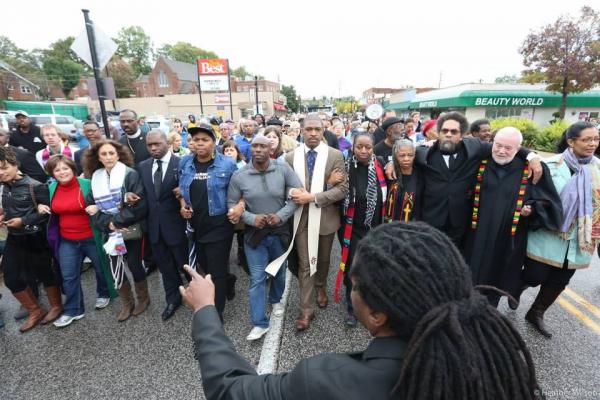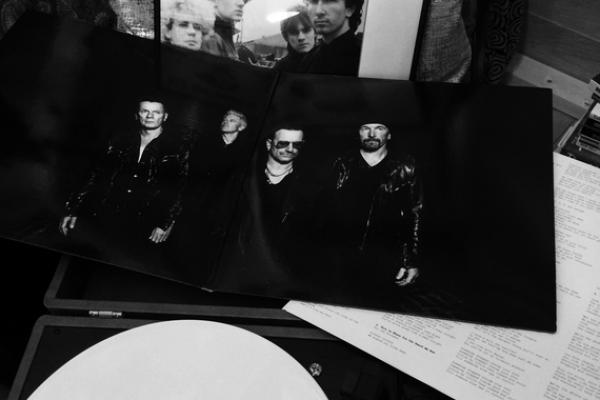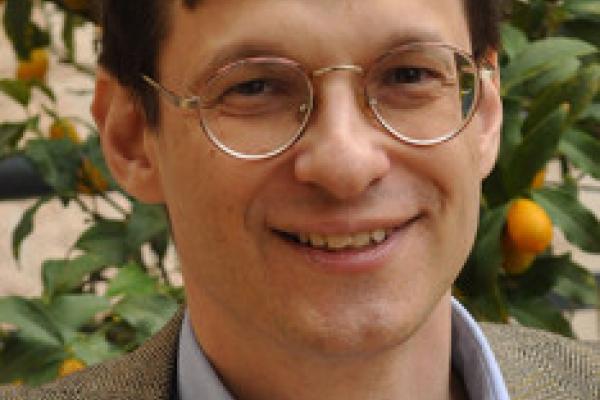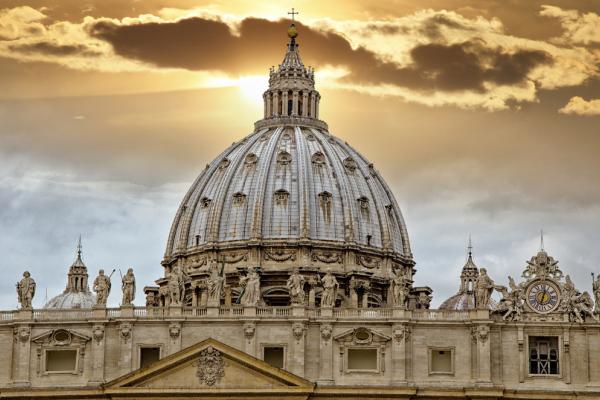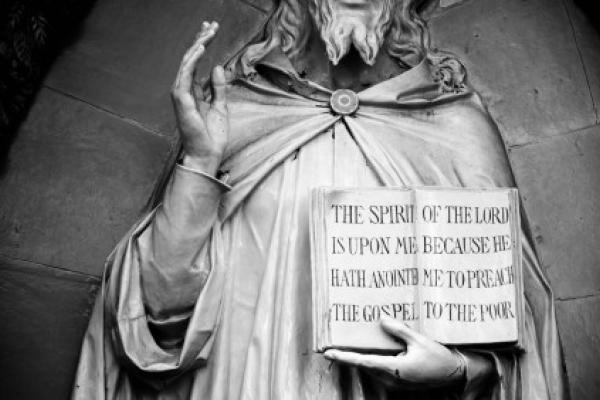News articles about turmoil at General Theological Seminary had immediate impact on those of us who attended Episcopal seminaries.
But the news “went viral” far beyond that small coterie and for reasons beyond nostalgia.
For one thing, it’s a juicy soap opera. Faculty playing hardball, then finding themselves unemployed. A dean pushing back, then losing credibility as word about him spread. A board looking confused and high-handed. Students wondering if they, too, should go on strike.
But impact goes beyond the particular event itself. For something fundamental seems to be changing.
A midpoint report from this month’s Synod of Bishops reveals that Catholic leaders are considering more conciliatory language toward gays and lesbians, divorced and remarried Catholics, and couples who live together before getting married.
Meeting with nearly 200 senior prelates and several dozen lay experts and observers at the Vatican, Pope Francis has deliberately engineered a lively discussion of issues concerning marriage and family life. This assembly, and a follow-up summit in 2015, will help shape the pontiff’s legacy.
Reporters and commentators are producing a flurry of analysis mostly centered on the question of whether the synod portends a change in substance or merely a change in tone. Such is the abiding question of Francis’ papacy.
Yet through these lively debates in Catholic life runs a theme that is as old as the Reformation: the role of individual conscience.
Often we do not know how our words and actions affect and harm others. However, ignorance is not an excuse. As the body of Christ, we must be willing to look deeply at the implications of the choices we make. When those choices cause harm – intentionally or unintentionally – we must repent and ask for forgiveness.
Forgive Us: Confessions of a Compromised Faith was a cry from my heart and the hearts of my coauthors as we wrestled with what it means to be the church of “Good News” in the 21st century. So many people do not see the evangelical church from that perspective. The church – rather than being Good News – is often a painful place where broken people, judgment, and criticisms prevail.
“Get the word out. Teach all these things. And don’t let anyone put you down because you’re young. Teach believers with your life: by word, by demeanor, by love, by faith, by integrity.” –1 Timothy 4:12 (The Message)
In our recent book Forgive Us: Confessions of a Compromised Faith, Mae Cannon, Lisa Sharon Harper, Soong-Chan Rah, and I call the American church to a posture of repentance due to all the times we have not only been on the wrong side of history, but on the wrong side of God.
As an organizer and director of the AMOS Project in Cincinnati, I’ve discovered that a humble spirit of repentance is critical to powerful work around racial and economic justice. There can be a strong temptation to replay colonialism by having all the answers and believing we are God’s gift to the oppressed. We white evangelicals are particularly susceptible to this arrogant path. Humility and a repentant spirit are key to a healthy engagement and partnership in our work.
Thousands of people from around the country came to Ferguson, Mo., for a “weekend of resistance.” But for faith leaders it was a weekend of repentance. Twenty of us were arrested in Ferguson yesterday for an act of repentance.
I went to Ferguson as a faith leader but, in particular, as a white faith leader. Because the great disparity between how differently young black lives are treated in our criminal justice system than young white lives is a fundamental injustice that must not only be left to black faith leaders to raise up. Repentance must begin in the white Christian community for tolerating this offense to our black brothers and sisters and, ultimately, this offense to God. Let me be as honest as I can be. If white Christians in America were more Christian than white, black parents could feel safer about their children. It’s time for us white Christians to repent — turn around and go in a new direction.
Repentance is a powerful theme throughout the Bible. But its meaning is often not well understood. Repentance is not about being sorry or just feeling guilty. It is about turning in a new direction. The biblical word for repentance in the original Greek is metanoia, which means you are going in the wrong direction, and it’s time to turn right around.
In the case of Ferguson, repentance means more than merely acknowledging the tragic death of an unarmed 18-year-old African-African man named Michael Brown on Aug. 9 — shot and killed by a white police officer named Darren Wilson. Repentance means more than lamenting the loss of another young black man or being sympathetic to his grieving mother. True repentance means changing the direction of the practices and policies that led to his death and so many others.
In ‘Island of Warriors,’ the second episode of the new PBS series America by the Numbers, Maria Hinojosa, executive producer and anchor of NPR’s Latino USA, examines the challenges faced by American veterans in Guam. While Guamanian residents serve in the military at three times the rate of the rest of the United States and territories, they receive the lowest per capita medical spending from the U.S. Department of Veteran Affairs. This discrepancy in resources translates to only two full-time psychiatrists for an island of as many as 16,000 veterans — 3,000 of whom are actively requesting VA medical support for psychological disorders like PTSD.
How could this be possible?
Like Puerto Rico, Guam is a U.S. territory. While residents of these territories can, and do, enlist in the American military, they cannot vote for the president who sends them into battle. Similarly, they are represented on the floor of the House of Representatives only by delegates, who have no voting power. Eddie Calvo, the Republican governor of Guam, spoke truthfully when he ventured to call Guam a “colony” of the United States.
This disenfranchised status means that residents of U.S. territories like Guam have no real standing in American democracy. They must rely on others to advocate for them. When every state could use more resources to take care of the nearly 20 percent of veterans returning from Iraq with PTSD, who’s going to stand up for Guam?
As far as geopolitical power, Guam truly is the “least of these” in American democracy. While many Americans deplore Puerto Rico’s secondary status in American political discourse, Hinojosa recalled one Guamanian saying, “We just wish we were Puerto Rico. At least then people would know where we are.”
Think about it: Do you know where Guam is? I didn’t.
Sunday evening I did something I haven't done in close to 30 years: I went to an actual record store and bought a brand-new U2 album on vinyl, took it home, pulled out the turntable, put on my headphones, sat on the floor, and stayed up way too late reading the liner notes and listening to the songs over and over again.
Lord, how I've missed this particular ritual.
When I was a teenager, late Sunday nights were when I indulged my secret pleasure by listening in bed (clandestinely so as not to incur the wrath of my parents for being awake well past my bedtime) to the "King Biscuit Flower Hour" on WPLR, the classic rock station in New Haven that was one of two (the other being a horrendous pop-40 station) that came in clearly on the FM stereo in my upstairs bedroom.
I listened, religiously, every Sunday night for years, hoping to hear a song by one of the British New Wave bands of which I was fond, or, if I was particularly lucky, by my favorite band on the planet: U2.
Sometimes weeks would go by without hearing a U2 song on those late Sunday nights, my ear pressed to the transistor radio secreted next to the pillow on my twin bed. But then, like a bolt of lightning — I'd hear Bono's voice or Edge's guitar begin to keen. It was a wee bit magical, although in retrospect today I might call it sacred.
All the waiting and listening was worth it. Always.
A new institute in Jerusalem has been awarded $2.2 million to help Christians and Jews study Jewish texts, launching what’s being billed as a new kind of Jewish-Christian cooperation.
The Herzl Institute was awarded what’s being called the first ever multimillion-dollar grant in Jewish theology by the U.S-based Templeton Foundation, a philanthropic organization that has focused much of its giving on science-related projects. The Herzl Institute is a research institute that focuses on the development of Jewish ideas in fields like philosophy and history.
The institute is named for Theodor Herzl, considered the father of modern political Zionism, ideas that have found much support from conservative and evangelical Christians in the U.S.
Jewish and Christian collaboration has often been relegated to the political level, said Herzl President Yoram Hazony. The partnership reflects a new kind of engagement between Christians and Jews, he said.
The world’s Catholic bishops on Oct. 13 signaled a move toward greater tolerance of gays and lesbians, an about-face so unexpected that leaders of the church’s right wing called it a “betrayal.”
Noting that gays and lesbians have “gifts and qualities” to offer the church, the mid-point assessment reflected the impact that Pope Francis seems to be having on the two-week Synod on the Family as he pushes for a more open, less doctrinaire approach.
“Are we capable of welcoming these people, guaranteeing them a fraternal space in our communities?” said the communique from the nearly 200 bishops and lay delegates. “Often they wish to encounter a church that offers them a welcoming home.
“Are our communities capable of providing that, accepting and valuing their sexual orientation, without compromising Catholic doctrine on the family and matrimony?”
Christian researchers tracking decades of decline in charitable giving say the trend will not be reversed until pastors challenge congregants to embrace Jesus’ teachings on the poor.
But that, says Sylvia Ronsvalle, one of the authors of the annual “Empty Tomb” reports on Christian giving, will take a different kind of pastor than the counselors and comforters that seminaries and divinity schools have trained for ministry.
Seminaries instead need to school future clergy on the affluence of American congregations, and remind church members of “God’s agenda to love a hurting world,” the report said.
“The State of Church Giving through 2012: What are Christian Seminaries and Intellectuals Thinking — or Are They?” was issued by Empty Tomb, an Illinois-based nonprofit that tracks the percentage of church members’ income that they give to their congregation.
“Pastors are not being prepared to effectively pastor their people within an age of affluence,” said Ronsvalle, who wrote the report with her husband, John L. Ronsvalle.
